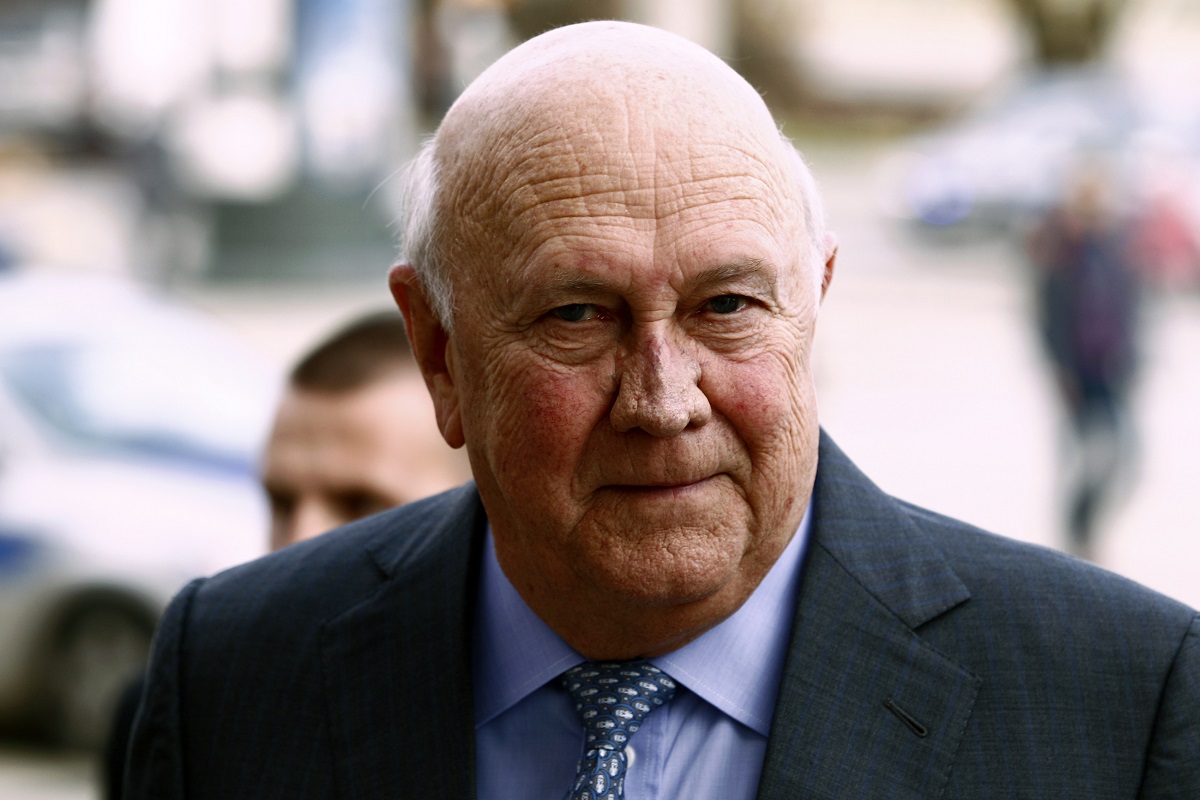An era ends with the passing of South Africa’s last white President, Frederik Willem (FW) de Klerk, who died on Thursday at the ripe old age of 85 after a battle with cancer. It was almost inevitable that his passing would evoke mixed reactions. Not the least because he had negotiated the end of white minority rule and a peaceful transfer of power to a government led by a black.
De Klerk won praise worldwide for his role in scrapping apartheid, a decidedly profound achievement for which he shared the Nobel Peace Prize with Nelson Mandela in 1993. The following year Mandela won South Africa’s first multi-racial election with his African National Congress (ANC).
And yet de Klerk’s role in the transition to democracy remains highly contested nearly 30 years after the end of apartheid. Many black people were angered by his failure to curb political violence in the turbulent years leading up to the 1994 multiracial elections, while right-wing white Afrikaners, who had long ruled the country under de Klerk’s National Party, lampooned him as a traitor to their cause of white supremacy.
The South African President, Cyril Ramaphosa, said he and the government were saddened by de Klerk’s death. He had played a “key role in ushering in democracy” in the country, Ramaphosa said, expressing his condolences to the former president’s family.
“May FW de Klerk rest in peace and rise in glory,” Archbishop Desmond Tutu, a veteran of the struggle against white minority rule and seen by many as South Africa’s moral conscience, said in a short statement released by his office.
“The former President occupied a historic but difficult space in South Africa,” Tutu’s office added, noting that he played “an important role in South Africa’s history,” it said.
“At a time when not all of his colleagues saw the future trajectory of the country unfolding in the same way, he recognised the moment for change and demonstrated the will to act on it.”
The Nelson Mandela Foundation said that de Klerk’s legacy was an “uneven one”. “De Klerk’s legacy is a big one. It is also an uneven one, something South Africans are called to reckon with at this moment,” a statement said. “De Klerk will forever be linked to Nelson Mandela in the annals of South African history.
As head of state, he oversaw the release of Madiba from prison on 11 February 1990. In 1993, they were jointly awarded the Nobel Peace Prize for ushering in a negotiated settlement that led to South Africa holding its first democratic election in 1994,” the statement added.
The supreme irony of de Klerk’s life must be that as President of South Africa he dismantled the apartheid system that he and his ancestors had helped put in place. His posthumous message should serve as his epitaph.
In a video released after his death, he said, “I, without qualification, apologise for the pain and the hurt and the indignity and the damage that apartheid has done to Black, Brown and Indians in South Africa.” A man brave enough to acknowledge a historical mistake, and one who then made amends, must be remembered with respect.












